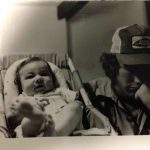The global coronavirus disease (COVID-19) pandemic has already had an enormous impact and will surely have profound consequences for many years to come.
 The authors reflect on three risk communication themes related to the pandemic: trust, tradeoffs, and preparedness. Trust is critically important during such a rapidly evolving event characterized by scientific uncertainty. Reflections focus on uncertainty communication, transparency, and long-term implications for trust in government and science. On tradeoffs, the positive and unintended negative effects of three key risk communication messages are considered (1) stay at home, (2) some groups are at higher risk, and (3) daily infections and deaths.
The authors reflect on three risk communication themes related to the pandemic: trust, tradeoffs, and preparedness. Trust is critically important during such a rapidly evolving event characterized by scientific uncertainty. Reflections focus on uncertainty communication, transparency, and long-term implications for trust in government and science. On tradeoffs, the positive and unintended negative effects of three key risk communication messages are considered (1) stay at home, (2) some groups are at higher risk, and (3) daily infections and deaths.
 The authors argue that greater attention to message ‘tradeoffs’ over ‘effectiveness’ and ‘evaluation’ over ‘intuition’ would help guide risk communicators under pressure. On preparedness, past infectious disease outbreak recommendations are examined. Although COVID-19 was inevitably ‘unexpected’, important preparedness actions were largely overlooked such as building key risk communication capacities.
The authors argue that greater attention to message ‘tradeoffs’ over ‘effectiveness’ and ‘evaluation’ over ‘intuition’ would help guide risk communicators under pressure. On preparedness, past infectious disease outbreak recommendations are examined. Although COVID-19 was inevitably ‘unexpected’, important preparedness actions were largely overlooked such as building key risk communication capacities.
COVID-19: Reflections on trust, tradeoffs, and preparedness, April 2020
Journal of Risk Research
Dominic HP Balog-Way and Katherine A McComas
When our eldest daughter was about six-weeks-old in 1987, my ex and I took her to a Grateful Dead concert at an outdoor amphitheater north of Toronto. We sat at the back. The dead did this Buddy Holly song as part of their encore and it was fabulous.




